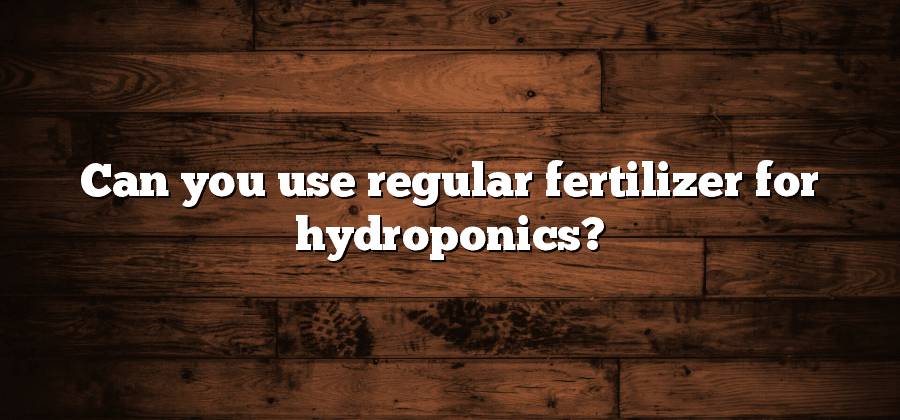Understanding the Basics of Hydroponics
Hydroponics is a modern agricultural practice that involves growing plants without the use of soil. Instead, plants are grown in a nutrient-rich water solution that provides all the necessary elements for their growth and development. This method offers several advantages over traditional soil-based farming, making it increasingly popular among both commercial growers and home gardeners.
One of the main benefits of hydroponics is the ability to control the growing environment more precisely. By providing the plants with precisely measured amounts of water, nutrients, and oxygen, growers can optimize their growth and achieve higher yields. This also allows for year-round cultivation, regardless of weather conditions or geographic location. Furthermore, hydroponics eliminates the need for pesticides and herbicides, as the controlled environment minimizes the risk of pests and diseases. Overall, understanding the basics of hydroponics opens up a world of possibilities for sustainable and efficient plant cultivation.
Importance of Proper Nutrition in Hydroponics
Hydroponics, a soil-less method of cultivating plants, has gained significant popularity in recent years. It offers numerous advantages, such as higher crop yields, year-round production, and efficient use of resources like water and space. However, for hydroponic crops to thrive, providing them with proper nutrition is of utmost importance.
In hydroponic systems, plants rely on nutrient-rich solutions instead of traditional soil for their growth and development. These solutions contain a mix of essential elements, including nitrogen, phosphorus, potassium, and various micronutrients. Each nutrient plays a crucial role in the plant’s overall health, influencing everything from root growth and flowering to leaf color and fruit development. Therefore, providing the correct balance of these nutrients in hydroponic systems is essential to ensure optimal plant growth and maximize crop quality and yield.
Different Types of Fertilizers for Hydroponics
There are several different types of fertilizers that can be used in hydroponics systems. Each type of fertilizer has its own composition and nutrient content, which makes it suitable for specific plant needs and growth stages.
One type of fertilizer commonly used in hydroponics is a liquid fertilizer. Liquid fertilizers are highly soluble and are easily absorbed by plants, providing them with a quick source of nutrients. These fertilizers often come in concentrated form and need to be diluted before being added to the hydroponic system. Another type of fertilizer is a powdered or granular fertilizer. These fertilizers are typically slower to dissolve but can provide a longer-lasting source of nutrients for plants. They are often mixed with the growing medium or added directly to the hydroponic system. Understanding the different types of fertilizers available for hydroponics allows growers to choose the most appropriate option for their specific needs and the plants they are cultivating.
Examining the Composition of Regular Fertilizers
In order to understand the composition of regular fertilizers used in hydroponics, it is important to delve into its key components. Regular fertilizers for hydroponics typically consist of three main macronutrients: nitrogen (N), phosphorus (P), and potassium (K), commonly referred to as N-P-K ratio. These macronutrients are essential for plant growth and development. The ratio of these elements in the fertilizer can vary depending on the specific needs of the plants being cultivated.
Nitrogen is a critical nutrient that plays a vital role in the production of proteins, enzymes, and chlorophyll. It is responsible for promoting leafy growth and overall plant vigor. Phosphorus is necessary for energy transfer and cellular processes such as photosynthesis, root development, and flower formation. Potassium, on the other hand, contributes to various metabolic functions and helps plants resist diseases and stress.
In addition to these macronutrients, regular fertilizers also contain secondary and micronutrients that are equally important for plant health. Secondary nutrients include calcium, magnesium, and sulfur, which are required in relatively smaller quantities but are still crucial for maintaining plant vigor. Micronutrients, such as iron, manganese, zinc, copper, boron, and molybdenum, are needed in trace amounts for various enzymatic functions.
Understanding the composition of regular fertilizers is essential for hydroponic growers as it allows them to provide the necessary nutrients in a controlled and precise manner. By tailoring the nutrient solution to the specific needs of the plants, growers can ensure optimal growth and maximum yields. Therefore, it is crucial to carefully analyze and select the right fertilizer composition based on the specific requirements of the crop being cultivated in the hydroponic system. By doing so, growers can effectively meet the nutritional needs of the plants and achieve success in their hydroponic endeavors.
Assessing the Nutrient Requirements of Hydroponic Systems
Hydroponic systems rely on the careful balance of nutrients to promote healthy plant growth. Assessing the nutrient requirements of these systems is crucial in order to provide the optimal environment for plants to thrive. Understanding the specific needs of different plant varieties and adjusting the nutrient ratios accordingly is key to achieving successful hydroponic cultivation.
When it comes to assessing nutrient requirements, it is important to consider factors such as the stage of plant growth, root zone conditions, and the nutrient solution composition. Different growing mediums and hydroponic setups may have varying nutrient requirements, so it is essential to tailor the nutrient formula to suit the specific system being used.
In order to assess nutrient requirements accurately, regular testing of the nutrient solution is imperative. Conducting routine tests to measure pH levels, electrical conductivity, and nutrient concentrations can provide valuable insights into the current nutrient status and help determine any adjustments that may be necessary. Monitoring plant health and growth patterns is also important to identify any signs of nutrient deficiencies or excesses, which may require prompt action. By closely evaluating and understanding the nutrient requirements of hydroponic systems, growers can ensure optimal nutrient uptake, leading to healthy and productive plants.






